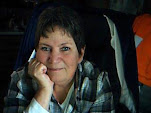Is anyone else confused about all the different "natural" supplements we are prodded to take as we try to eliminate taking drugs for every ailment under the sun? I started out by saying, "wow, I have to try that! and that....and that, etc." Then you start hearing that the supplements you bought "may not have all the benefits you had hoped for" due to many brands that don't use the part of the plant that has the helpful ingredients. Huh? Now we have to become detectives, scientists and naturopaths to just be as healthy as possible?
Even Dr. Oz's recommendations have become confusing. He gives SO many solutions for our health problems, that it's hard to keep track of what helps and what we need to avoid. My head is usually swimming by the end of his show! LOL! I do give him credit for bringing experts (ie: Dr. Mercola and Dr. Weil) with different viewpoints on to the show and having open discussions about controversial topics.
What are the most common natural supplements for menopause? According to WebMD they are the following (with a brief description of what to take them for and any cautions* you should observe:
|
|
Supplements and herbs may interact with some medicines you take. They could boost or negate a medicine's effect. Or the interaction could cause other problems. Some herbs can cause allergic reactions.

